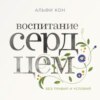Объем 200 страниц
The Salem Witchcraft, the Planchette Mystery, and Modern Spiritualism

О книге
The anthology 'The Salem Witchcraft, the Planchette Mystery, and Modern Spiritualism' presents a profound exploration of mystical and spiritual phenomena through a curated assembly of thought-provoking works. Immersing readers in a narrative tapestry that weaves historical accounts with speculative insights, this collection offers a compelling mosaic of enchantment and intellect. Each piece unravels elements of the spectral, the eerie, and the inexplicable, challenging the boundaries between superstition and belief. Standout narratives within this volume are meticulously selected to bridge historical mysticism with the then-emerging doctrines of modern spiritualism, leaving readers contemplating the universal human quest for understanding beyond the physical realm. The collection is graced by the pens of seminal writers Harriet Beecher Stowe and Samuel R. Wells, whose works collectively navigate through significant 19th-century cultural, spiritual, and literary shifts. Stowe's astute social awareness interlaces with Wells's innovative spiritualism, creating new dialogues that connect the trials of the human spirit with the era's fascination for the supernatural. The volume aligns with the surge of interest in spiritualism and the occult in post-colonial America, reflecting concerns of morality and humanity interspersed with an awakening curiosity for metaphysical explanations. This anthology represents an invaluable trove for readers eager to explore the confluence of history, spirituality, and literature. It offers a unique vantage point to appreciate the rich complexity of human belief systems and the diversity of narratives that challenge and expand conventional worldviews. 'The Salem Witchcraft, the Planchette Mystery, and Modern Spiritualism' invites engaging discourse and thoughtful introspection, making it an essential read for anyone fascinated by the multifaceted intersection of tradition, culture, and speculative thought in literary history.











